
Henri-Louis Bergson was a French philosopher who was influential in the tradition of analytic philosophy and continental philosophy, especially during the first half of the 20th century until the Second World War, but also after 1966 when Gilles Deleuze published Le Bergsonisme. Bergson is known for his arguments that processes of immediate experience and intuition are more significant than abstract rationalism and science for understanding reality.

Rudolf Carnap was a German-language philosopher who was active in Europe before 1935 and in the United States thereafter. He was a major member of the Vienna Circle and an advocate of logical positivism. He is considered "one of the giants among twentieth-century philosophers."
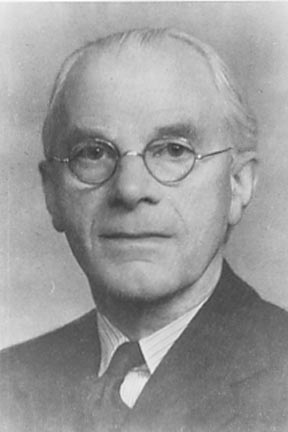
Herbert Dingle was an English physicist and philosopher of science, who served as president of the Royal Astronomical Society from 1951 to 1953. He is best known for his opposition to Albert Einstein's special theory of relativity and the protracted controversy that this provoked.

William Kingdon Clifford was an English mathematician and philosopher. Building on the work of Hermann Grassmann, he introduced what is now termed geometric algebra, a special case of the Clifford algebra named in his honour. The operations of geometric algebra have the effect of mirroring, rotating, translating, and mapping the geometric objects that are being modelled to new positions. Clifford algebras in general and geometric algebra in particular have been of ever increasing importance to mathematical physics, geometry, and computing. Clifford was the first to suggest that gravitation might be a manifestation of an underlying geometry. In his philosophical writings he coined the expression mind-stuff.
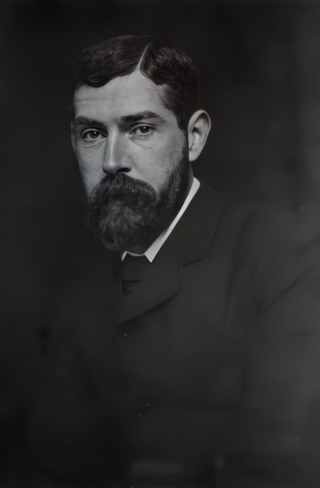
Francis Herbert Bradley was a British idealist philosopher. His most important work was Appearance and Reality (1893).
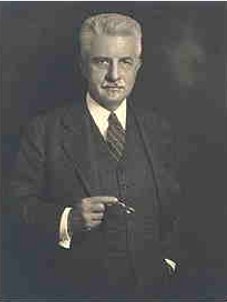
Arthur Oncken Lovejoy was an American philosopher and intellectual historian, who founded the discipline known as the history of ideas with his book The Great Chain of Being (1936), on the topic of that name, which is regarded as 'probably the single most influential work in the history of ideas in the United States during the last half century'. In 1940, he founded the Journal of the History of Ideas.

Giovanni Gentile was an Italian philosopher, educator, and politician. Described by himself and by Benito Mussolini as the "philosopher of Fascism", he was influential in providing an intellectual foundation for Italian Fascism, and ghostwrote part of The Doctrine of Fascism (1932) with Mussolini. He was involved in the resurgence of Hegelian idealism in Italian philosophy and also devised his own system of thought, which he called "actual idealism" or "actualism", which has been described as "the subjective extreme of the idealist tradition".

Charlie Dunbar Broad, usually cited as C. D. Broad, was an English epistemologist, historian of philosophy, philosopher of science, moral philosopher, and writer on the philosophical aspects of psychical research. He was known for his thorough and dispassionate examinations of arguments in such works as Scientific Thought (1923), The Mind and Its Place in Nature (1925), and Examination of McTaggart's Philosophy.
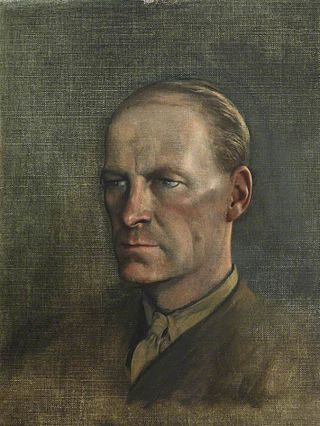
Gilbert Ryle was a British philosopher, principally known for his critique of Cartesian dualism, for which he coined the phrase "ghost in the machine." He was a representative of the generation of British ordinary language philosophers who shared Ludwig Wittgenstein's approach to philosophical problems.
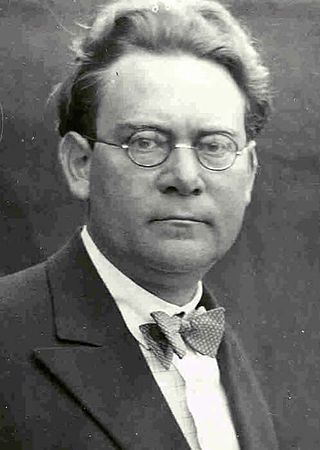
Hans Reichenbach was a leading philosopher of science, educator, and proponent of logical empiricism. He was influential in the areas of science, education, and of logical empiricism. He founded the Gesellschaft für empirische Philosophie in Berlin in 1928, also known as the “Berlin Circle”. Carl Gustav Hempel, Richard von Mises, David Hilbert and Kurt Grelling all became members of the Berlin Circle.
John Elof Boodin was a Swedish-born American philosopher and educator. He was the author of numerous books proposing a systematic interpretation of nature. Boodin's work preserved the tradition of philosophical idealism within the framework of contemporary science. Boodin also focused on the social nature of human behavior believing an understanding required an appreciation of individual participation in social life and interpersonal relationship.
John Henry Muirhead was a British philosopher best known for having initiated the Muirhead Library of Philosophy in 1890. He became the first person named to the Chair of Philosophy at the University of Birmingham in 1900.

Ralph Barton Perry was an American philosopher. He was a strident moral idealist who stated in 1909 that, to him, idealism meant "to interpret life consistently with ethical, scientific, and metaphysical truth." Perry's viewpoints on religion stressed the notion that religious thinking possessed legitimacy should it exist within a framework accepting of human reason and social progress.
John Alexander Smith was a British idealist philosopher, who was the Jowett Lecturer of philosophy at Balliol College, Oxford from 1896 to 1910, and Waynflete Professor of Moral and Metaphysical Philosophy, carrying a Fellowship at Magdalen College in the same university, from 1910 to 1936. He was born in Dingwall and died in Oxford.
John Burnet, FBA was a Scottish classicist. He was born in Edinburgh and died in St Andrews.

Alfred Edward Taylor, usually cited as A. E. Taylor, was a British idealist philosopher most famous for his contributions to the philosophy of idealism in his writings on metaphysics, the philosophy of religion, moral philosophy, and the scholarship of Plato. He was a fellow of the British Academy (1911) and president of the Aristotelian Society from 1928 to 1929. At Oxford he was made an honorary fellow of New College in 1931. In an age of universal upheaval and strife, he was a notable defender of Idealism in the Anglophone world.
The Aristotelian Society for the Systematic Study of Philosophy, more generally known as the Aristotelian Society, is a philosophical society in London.

Hilda Diana Oakeley was a British philosopher, educationalist and author.
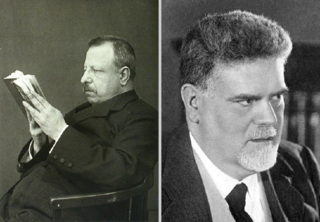
Italian idealism, born from interest in the German movement and particularly in Hegelian doctrine, developed in Italy starting from the spiritualism of the nineteenth-century Risorgimento tradition, and culminated in the first half of the twentieth century in its two greatest exponents: Benedetto Croce and Giovanni Gentile.
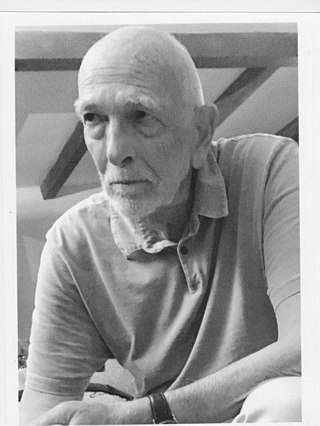
Herbert Morris (1928-2022) was an American philosopher, legal scholar, and literary critic, who spent his career at the University of California, Los Angeles.














